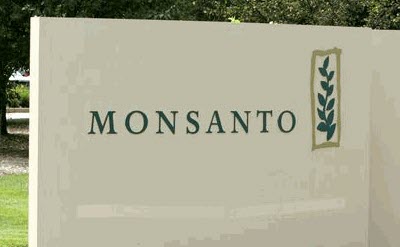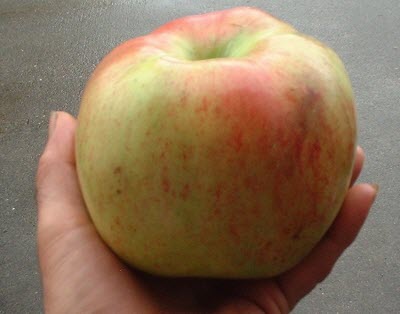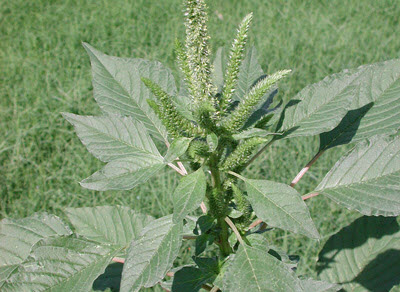The Economic Research Service, an arm of the U.S. Department of Agriculture, in its second report, Genetically Engineered Crops in the United States, downplayed the impact of glyphosate resistance and gave Bt crops the kid gloves treatment.
|
|
|||
|
A recent number crunching report by the Electronic Research Service (ERS) arm of the US Department of Agriculture (USDA) gives the reader an eye full of charts, graphs and statistics but not the full picture of Genetically Engineered Crops in the U.S. A posted announcement by the U.S. Department of Agriculture caused quite a stir on Wednesday when it appeared to embrace the “Meatless Monday” campaign until it heard from the beef industry. Oops! After a lengthy legal battle the U.S. Department of Agriculture decided to completely deregulate Monsanto’s genetically engineered sugar beets. Monsanto’s genetically modified soybeans to be used for cooking oil containing lower levels of saturated fats and higher levels monounsaturated fats were approved last year by U.S. regulators. Yet, while Monsanto prepares for product launch, important safety questions remain unanswered. Dennis J. Kucinich (D-OH) has once again introduced a bill that would require require the labeling of all foods that contain or are produced with genetically engineered material. It is a counter-balance to another pending legislation that could strip USDA of some of its authority to approve to biotech crops. Recently, Sec. of Agriculture Tom Vilsack compared biotechnology and sustainable agriculture to two sons, for whom he declared equal love. Read on to learn why biotech has in fact been the agency’s favorite “son.” USDA often sides with and promotes industry interests. Its new pilot program allowing biotech developers to prepare their own safety studies or pay for those selected by the agency will only reinforce the image of an agency regulating for the industry. The organic food sector grew last year by nearly 8 percent, far out-pacing the overall stagnant U.S. food industry and providing new jobs. Consumers continue voting organic with their dollars. Conventional and organic farmers and environmental groups filed a lawsuit challenging the USDA’s decision to permit the unrestricted commercial release of genetically engineered alfalfa. In less than a month, USDA has approved for unrestricted growth GE alfalfa and partially deregulated GE sugar beets. Now, it deregulates GE corn for biofuel production with no environmental impact study of novel proteins it contains. On the heels of the decision to deregulate genetically engineered alfalfa, this Friday USDA announced that it will allow the planting of Monsanto’s “Roundup Ready” GE sugar beets even though the agency has yet to finalize conducting an Environmental Impact Statement. A Federal Court ordered the removal of genetically modified beet seedlings. After USDA and Monsanto appealed, the Ninth Circuit Court of Appeals is delaying the removal until a hearing that was rescheduled for February. USDA was asked to approve a genetically modified apple variety that keeps from oxidizing and going brown when cut or damaged, but this is produce nobody wants. While still under investigation for anti-competitive patent practices and under a threat of an anti-trust case against them, Monsanto is busy tackling other issues. Superweeds are invading fields across the globe. Before we start looking blaming farmers, however, careful attention must be paid to government agencies and seed companies and how the two partner-up to foster the conditions that lead to superweeds. Federal Court finds that Plaintiffs are likely to succeed on their claims that the Animal and Plant Health Inspection Services illegally permitted the planting of genetically engineered sugar beet. The Office of Inspector General gave the nation’s residue inspection program, which monitors to ensure that the nation’s meat supply is free from chemical contamination, a failing score. Eat meat at your own risk. AHPIS announced its response to a recent federal court decision which banned the planting of Monsanto’s GM sugar beets until the agency conducts an EIS. Many, however, see the agency’s response as an attempt to circumvent the court’s ruling. In depth analysis of Judge White’s decision which rescinded USDA’s and APHIS’ decision to deregulate Roundup Ready sugar beets without conducting an Environmental Impact Statement. Last week, superweeds and GMOs were on the minds of many U.S. lawmakers. Reports continued on growing pesticide resistance. Bee colony collapse problem grows. EPA considers giving environmental justice a chance. EU approved more GM maize imports, while a GMO-Free Europe conference nears. And more. When Barak Obama was elected, many in the sustainability movement believed that they finally had an ally in the White House. However, the President’s agricultural appointments tell a different story. A coalition of agriculture groups and 75 Members of Congress wrote to Tom Vilsack, urging the USDA to allow limited planting of Roundup Ready alfalfa while the agency completes an Environmental Impact Statement. |
|||
|
 |
|||

















